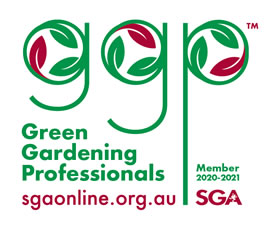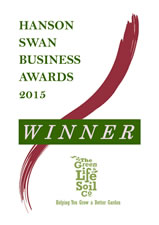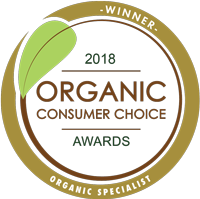| item(s), Total: $0.00 View Cart |
| Shopping cart is empty. |
If you're planning on some Christmas projects over the holidays, please book early for any deliveries to avoid disappointment! We will be closing for the Christmas break as follows:
Paul & I had a lovely couple of days in Busselton in November - we were invited down to do talks on 'Summer Loving Gardens' on behalf of the Geographe Bay Catchment Group's "Bay OK" program. (One of the photos above/right of Paul) We also presented a talk on behalf of WALDA (WA Landscape Designers Assoc) for their student and graduate members - sharing tips on building soil for long term garden health. We hope we've played a part in inspiring future landscapers in caring for the soil. Speaking of inspiration, we're saddened to hear recently about the passing of Peter Cundall. He was such a great presenter on Gardening Australia and played a huge part in inspiring us along our organic gardening journey. I'm sure we all have fond memories of him on our TV screens; a life well lived. He passed away on 5th December - which also happens to be World Soil Day. A strange but fitting coincidence. World Soil Day 2021 had the tagline "halt soil salinization; boost soil productivity". Definitely important on a global scale, and also in our own back yard. There's a lot we can do as soil stewards to improve and protect soil. We hope we can inspire you to get into your garden over the coming weeks (let's hope for a mild Christmas!)
From Linda, Paul and all of us @ The Green Life Soil Co In this newsletter, we've got articles & ideas on: Jobs to do in the December garden Jobs to do in the garden NOWChristmas is ON OUR DOORSTEP! So it's time to get busy...
What to Plant NOW
Basil, Beans (snake beans - pictured right - highly recommended for summer, as they can handle the hot weather), Beetroot, Capsicum, Chilli, Carrots, Chokos, Cucumber, Eggplant, Ginger, Leeks, Lettuce, Malabar Spinach, Okra, Parsnips, Pumpkin, Radish, Rockmelon, Rosella, Silverbeet, Spring Onions, Squash, Strawberries, Sweet corn, Sweet potato, Tomatoes, Watermelon, Zucchini. We recently received another Eden Seed order, and we've got fresh seedlings and herbs coming in all the time - so do pop in and grab what you need to fill gaps in your Summer crops.
"Non-organic strawberries grown commercially in Australia are more likely to be contaminated with pesticides than any other fresh fruit. Typically, for non-organic crops, the soil is fumigated pre-planting and the strawberry plants are routinely treated on a weekly basis with systemic fungicides and insecticides (that can penetrate the fruit). In some cases, post-harvest chemical treatments are also applied to the fruit. Because of the short cycle of fruiting & harvesting, withholding periods between treatment and picking are very short - as little as one day." Summertime (gardening) Blues
At GLSC we really DO want you to have success with your gardens; here's some things to consider in the next weeks & months while we get through our summers. If you're finding it a struggle to keep your vegie gardens alive - then consider whether it's wise to do so! If you have a garden that does well in winter, but because of where it's located, just doesn't thrive in summer - consider using it as a seasonal bed. Any areas left fallow that dry out will need some TLC in autumn to rejuvenate them - but perhaps that's less soul destroying than worrying about them through summer. We DO recommend you mulch really well any areas that you're not using. A thick layer of a woodchip mulch will help.
Consider your choice of plants. With ornamental and exotic gardens - if things are struggling, it may be worth reconsidering your choice of plant and/or your choice of plant in that particular location. The truth is, we CAN keep tender and fussier plants going, but it's a heck of a lot easier if it's somewhere that has the right conditions & microclimate in the first place. There are some fabulous plants out there that do very well with minimum water - but it comes down to selection and good advice. Go to a specialist nursery; if it's native plants you're looking for - take a drive out to one of our fabulous specialists (like our friends at Zanthorrea). Staff at these nurseries know their stock and can assist you with the right plant for your situation and preferences.
Stacking. New gardens often cop a hammering because they simply don't have an established environment - this refers to things like shade from other plants, and also from existing soil biology. So if you are planning a new garden, be patient! Perhaps DON'T think about planting everything straight away - it may struggle and die. Work on layering - put in "pioneer plants" which can establish, then as they mature, other plants can go in around them and take advantage of the shelter and microclimate they provide. If you DO choose to fill the gaps all at once - perhaps plan on some plants being temporary anyway - a bit of quick colour that can be replaced or moved once you do your 'infill of choice' in coming seasons. Shelter. Plants going in against fences and brick walls and near paving are going to have a hard time with all the reflected heat that these surfaces give off. Consider temporary shade cloth over summer, it may only be needed in the first year if it's a new garden. These structures will save your plants and save you money if it means plants survive and don't need to be replaced. In new housing estates, smaller blocks mean smaller garden beds - this means narrow strips of garden are usually placed against fences and parapet walls - so it's more difficult to achieve benefits of a 'stacking' environment just mentioned; so artificial means of shelter need to be provided.
Soil improvement. Really - this is TOP OF THE LIST whether you're considering vegetable gardens, a lawn or any type of garden bed. In our sandy soil, we need to improve the structure first and foremost for plants to thrive (with the exception of local native species who have adapted to our local soils over thousands of years). Getting in minerals to hold water and turn sandy soils into a loam is vital - and the good thing is that if you do it properly, it is a once-off cost. You will still need to top up organic matter, but minerals like clay, biochar, amorphous silica ('Mineral Magic') and zeolite will stay in your soil forever (almost). Getting soil structure right is the first step (in our opinion) & key to building soil health. Bring in a sample of your sandy soil (about half a bucket full) and we can demonstrate the difference that these soil additives make to the structure of your soil.
From what we've observed over the years, the art of gardening in our climate comes down to "the rule of thirds" (but not quite the one photographers use!). We believe that a third of a good garden comes from the soil health; a third comes from the watering (ie. not too much nor too little/water quality/delivery methodology); and a third comes down to management practices - plant selection, fertilising, pruning, pest & disease management. Meatloaf may have sang "Two out of three ain't bad" - but if you can aim for 3 out of 3 - you'll be creating a sustainable garden that will truly be your own paradise. Want MORE tips? Visit the 'Learn' tab on our website and scroll through the 'gardening & growing' free factsheets for more top tips (there's 4 pages worth to choose from!) Christmas Gift Ideas
Simple home made pest repellent spraysWe've got a whole fact sheet on our website dedicated to pest recipes - but here are a few more that use common garden plants & herbs that you may like to try. A word of warning - just because something is natural doesn't mean it's not harmful!! Be aware that many of these plants & herbs are also poisonous to people and animals - they may make you sick (or far worse) if consumed - so always label your bottles and store responsibly. Make sure they can't be consumed by children or pets. Better yet; use and dispose of left overs in a short space of time to reduce the risk. Remember that all sprays are going to be harmful to beneficial insects too. Don't use them in the middle of the day when bees are around.
Wormwood spray (Any variety of wormwood would be useful) Rhubarb spray
Coffee snail killer Clay spray Glue spray Self-insect spray Want more info on natural recipes to make at home for pest control? Click on the link here. Photo Competition Winner
Each month, we select a winner at random to receive a $50 store credit with us. Simply email us in your photos (with 'photo competition' as the subject header) or message via Facebook. Let me know a little bit about your garden - just a few lines; and it may be YOU next time! VIP Special Offer
Retailer UpdatePlease support your local independent retailer who supports us! The specialist retailers listed here will be happy to give you gardening advice and help you with our products - please call to check what lines they carry. (And they've also got fabulous Christmas gifts in store, too!)
Ardess Nursery (Albany) 9842 9952 THANK YOU for being part of The Green Life Family! Keep up to date with news & info on our Facebook and Instagram pages. Until next time - Happy Gardening! |



 Welcome to December - it's officially SUMMER! It's also about now we enter Birak - the Noongyar first summer season; with warmer days and cooling afternoon sea breezes. This regular weather pattern made it the time to do cool burns through the landscape; enabling rejuvenation of the vegetation, and making areas easier to traverse. This time of year sees many fledglings and younger animals abound. The WA Christmas tree, Nuytsia floribunda, is flowering - the striking orange flowers are sacred to the Noongyar people - and look amazing in areas of bush right now. In our suburbs, the Jacarandas are awash with purple. The native Blue Banded Bee is active & being spotted all over town - have you managed to find one yet? (You need some patience and perseverance - they're quick!)
Welcome to December - it's officially SUMMER! It's also about now we enter Birak - the Noongyar first summer season; with warmer days and cooling afternoon sea breezes. This regular weather pattern made it the time to do cool burns through the landscape; enabling rejuvenation of the vegetation, and making areas easier to traverse. This time of year sees many fledglings and younger animals abound. The WA Christmas tree, Nuytsia floribunda, is flowering - the striking orange flowers are sacred to the Noongyar people - and look amazing in areas of bush right now. In our suburbs, the Jacarandas are awash with purple. The native Blue Banded Bee is active & being spotted all over town - have you managed to find one yet? (You need some patience and perseverance - they're quick!) 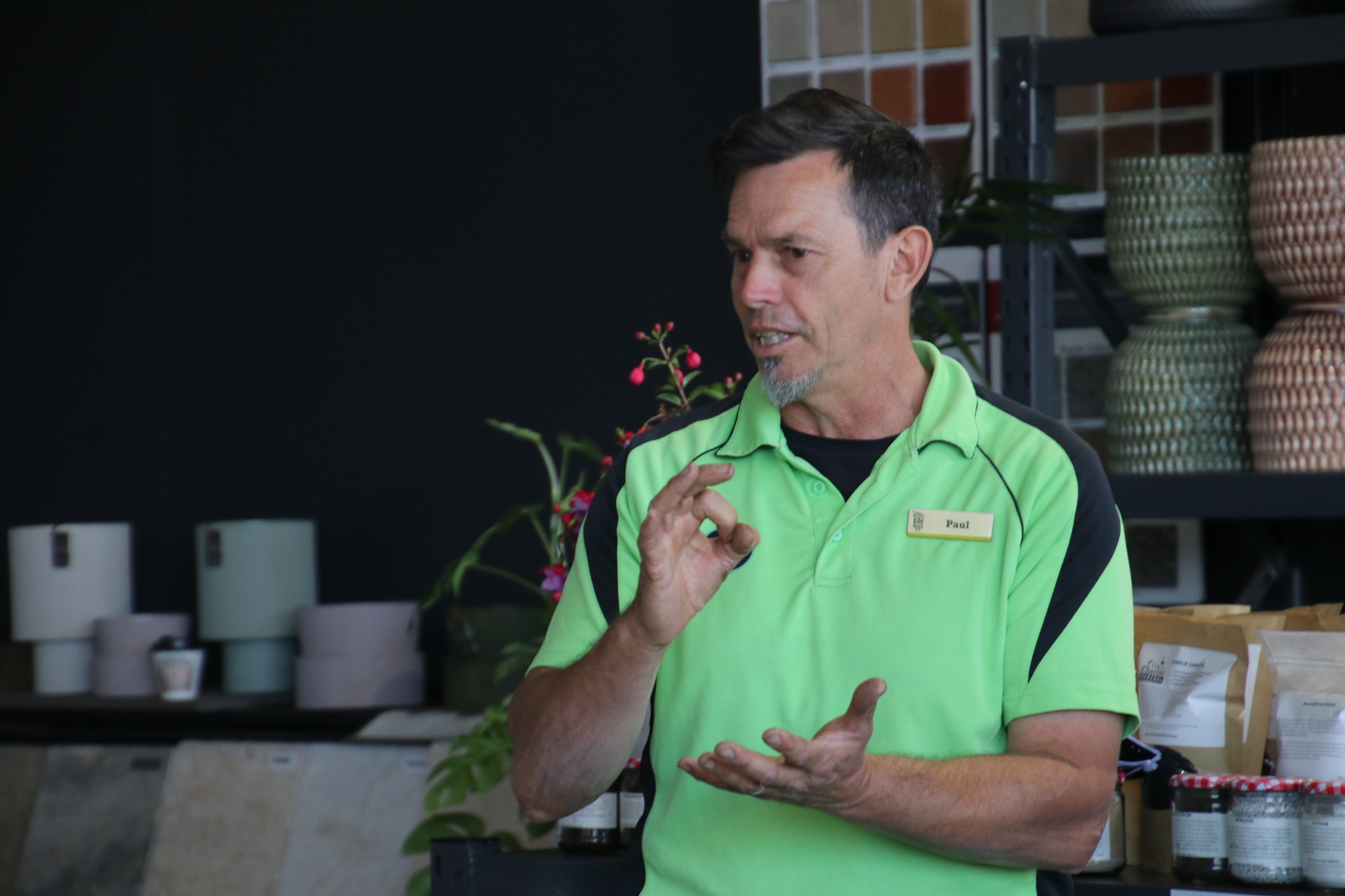 OPEN Thursday 23rd December
OPEN Thursday 23rd December  Thank you for all your ongoing support in 2021 - we wish you and your family a very relaxing and happy Christmas and New Year - we look forward to seeing you again soon!
Thank you for all your ongoing support in 2021 - we wish you and your family a very relaxing and happy Christmas and New Year - we look forward to seeing you again soon! 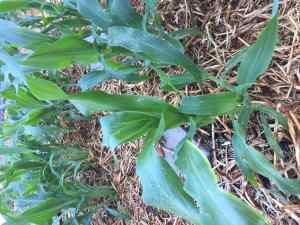 Mulch! If you haven't already mulched your garden, don't delay. Use a good quality soil wetter (Like Eco-wet) on hydrophobic soils, and get your mulch down. If you've laid mulch in Spring, check to see how it's working & whether there's areas that need topping up. (Vegie gardens in particular that have been mulched with straw or pea straw may need a top up as the straw breaks down fairly quickly.)
Mulch! If you haven't already mulched your garden, don't delay. Use a good quality soil wetter (Like Eco-wet) on hydrophobic soils, and get your mulch down. If you've laid mulch in Spring, check to see how it's working & whether there's areas that need topping up. (Vegie gardens in particular that have been mulched with straw or pea straw may need a top up as the straw breaks down fairly quickly.) Get your seeds started for succession plantings of lettuce, beans, and another crop of corn. It's not too late to plant cucumber, pumpkins, melons, zucchini etc. from seed if you get cracking.
Get your seeds started for succession plantings of lettuce, beans, and another crop of corn. It's not too late to plant cucumber, pumpkins, melons, zucchini etc. from seed if you get cracking.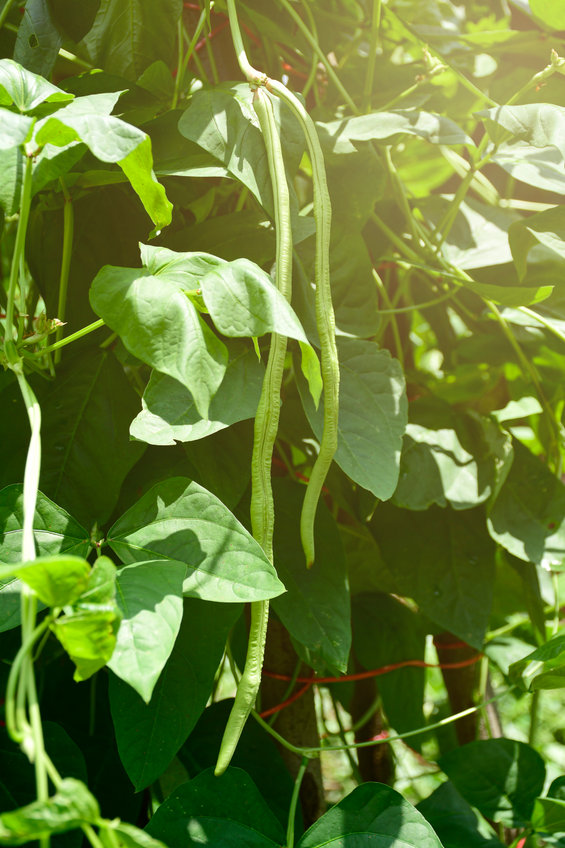 Check out our
Check out our  I hope you enjoyed the article in last month's newsletter on growing Strawberries? (
I hope you enjoyed the article in last month's newsletter on growing Strawberries? ( Here in Perth and surrounding areas of Western Australia, we live on the edge of a desert, and have unique & ancient sandy soils to cope with. This combination of our climate and infertile soils makes gardening a challenge. We're constantly reminded of the need to conserve water, yet we instinctively want to surround our homes with green - and it IS important to have an oasis of green to cool our homes, sooth our senses, and in many cases - provide us with food. While growing in winter is relatively easy, we know it's a completely different situation in summer.
Here in Perth and surrounding areas of Western Australia, we live on the edge of a desert, and have unique & ancient sandy soils to cope with. This combination of our climate and infertile soils makes gardening a challenge. We're constantly reminded of the need to conserve water, yet we instinctively want to surround our homes with green - and it IS important to have an oasis of green to cool our homes, sooth our senses, and in many cases - provide us with food. While growing in winter is relatively easy, we know it's a completely different situation in summer. Think about turning garden beds into wicking beds. The way a wicking bed works is that a reservoir of water is UNDERNEATH your growing area. Water is accessed by plants roots with capillary action through the soil. Plants (once established) can take up water when they need it - not just when you decide to water them. It tends to result in stronger, more even growth, and less wasted water. Wicking beds still need to be mulched, and still use water - but quite efficiently, all things considered. The internet is awash with videos and articles on how to make them - and ready to use kits are available. We stock the Australian made "Foodcube" for example - a sturdy bed 1.2m x 1.2m (internal growing space 1m2) and 50cm high - ready to fill with vegie mix & get growing!Wicking beds are like an oversized self watering pot - and of course, self watering pots are a good choice for your patios & verandahs for making your life a bit easier AND keeping precious plants healthy.
Think about turning garden beds into wicking beds. The way a wicking bed works is that a reservoir of water is UNDERNEATH your growing area. Water is accessed by plants roots with capillary action through the soil. Plants (once established) can take up water when they need it - not just when you decide to water them. It tends to result in stronger, more even growth, and less wasted water. Wicking beds still need to be mulched, and still use water - but quite efficiently, all things considered. The internet is awash with videos and articles on how to make them - and ready to use kits are available. We stock the Australian made "Foodcube" for example - a sturdy bed 1.2m x 1.2m (internal growing space 1m2) and 50cm high - ready to fill with vegie mix & get growing!Wicking beds are like an oversized self watering pot - and of course, self watering pots are a good choice for your patios & verandahs for making your life a bit easier AND keeping precious plants healthy.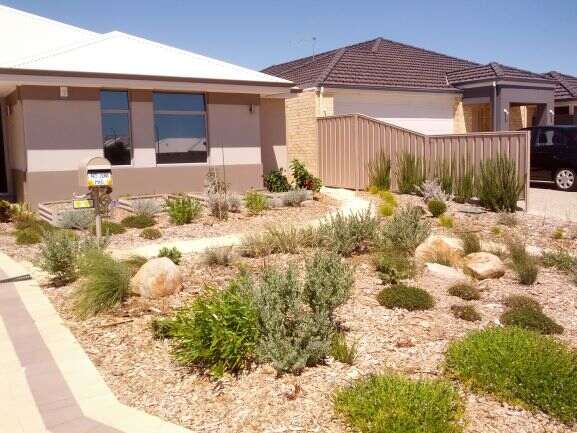 If you have a lawn that is constantly struggling - think about how you use the space. If it's a "dead zone" in an area of the front yard or verge, consider a makeover ~ grow ground covers instead. Many are suitable for the occasional vehicle to park on, they will definitely use less water once established, and some will be flowering plants that provide food and habitat for birds and other wildlife. Again - do a bit of research and get advice! Many councils have guidelines for verge planting - so that's a great place to start. Healthy plants will add more value and street appeal to your house than a struggling patch of lawn will.
If you have a lawn that is constantly struggling - think about how you use the space. If it's a "dead zone" in an area of the front yard or verge, consider a makeover ~ grow ground covers instead. Many are suitable for the occasional vehicle to park on, they will definitely use less water once established, and some will be flowering plants that provide food and habitat for birds and other wildlife. Again - do a bit of research and get advice! Many councils have guidelines for verge planting - so that's a great place to start. Healthy plants will add more value and street appeal to your house than a struggling patch of lawn will. Watering systems. Water really is precious and we need to manage its use carefully. These days there are some fabulous options to deliver water directly to the soil - where plants need it. Do speak to an expert who can help you design a system (even if you plant to install it yourself). Check it regularly to make sure it's all working ok. Systems are often programmed to come on in the early hours of the day - the best time to water your plants - but unless you're an early riser, you may not see how well it's working unless you schedule in a quick check from time to time. Remember - plants grow (thus blocking delivery from sprinklers), sprinkler heads get blocked or damaged, and sometimes water pressure causes irregular distribution.
Watering systems. Water really is precious and we need to manage its use carefully. These days there are some fabulous options to deliver water directly to the soil - where plants need it. Do speak to an expert who can help you design a system (even if you plant to install it yourself). Check it regularly to make sure it's all working ok. Systems are often programmed to come on in the early hours of the day - the best time to water your plants - but unless you're an early riser, you may not see how well it's working unless you schedule in a quick check from time to time. Remember - plants grow (thus blocking delivery from sprinklers), sprinkler heads get blocked or damaged, and sometimes water pressure causes irregular distribution.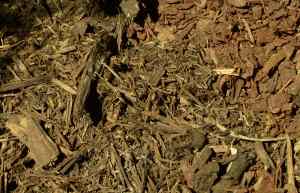 Mulching is vital. There are so many different types of mulch available - often it comes down to your personal preference and budget. Come and have a chat and we can show you options and work out what will suit you best. A good layer of much acts like a protective blanket. It lets water through, but slows/prevents evaporation from the soil, keeps the roots cool, and encourages microbial activity - a win:win for your plants anyway you look at it. Making your own mulch from prunings and disease free plant material is a great way to 'close the loop'; reducing waste and keeping your garden happy at the same time. [Maybe ask Santa for a mulcher this year?]
Mulching is vital. There are so many different types of mulch available - often it comes down to your personal preference and budget. Come and have a chat and we can show you options and work out what will suit you best. A good layer of much acts like a protective blanket. It lets water through, but slows/prevents evaporation from the soil, keeps the roots cool, and encourages microbial activity - a win:win for your plants anyway you look at it. Making your own mulch from prunings and disease free plant material is a great way to 'close the loop'; reducing waste and keeping your garden happy at the same time. [Maybe ask Santa for a mulcher this year?] If you're following us on
If you're following us on 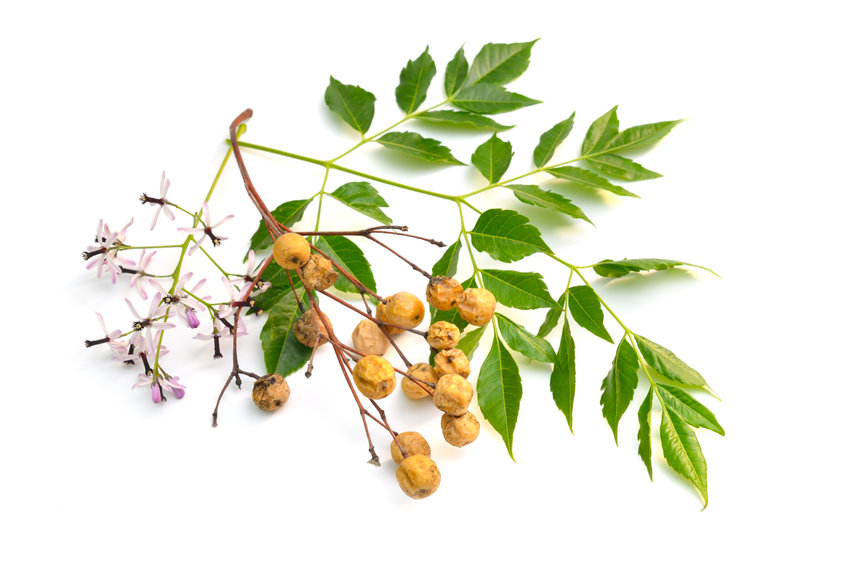 White Cedar (Cape Lilac) Melia azedarach (pictured right)
White Cedar (Cape Lilac) Melia azedarach (pictured right)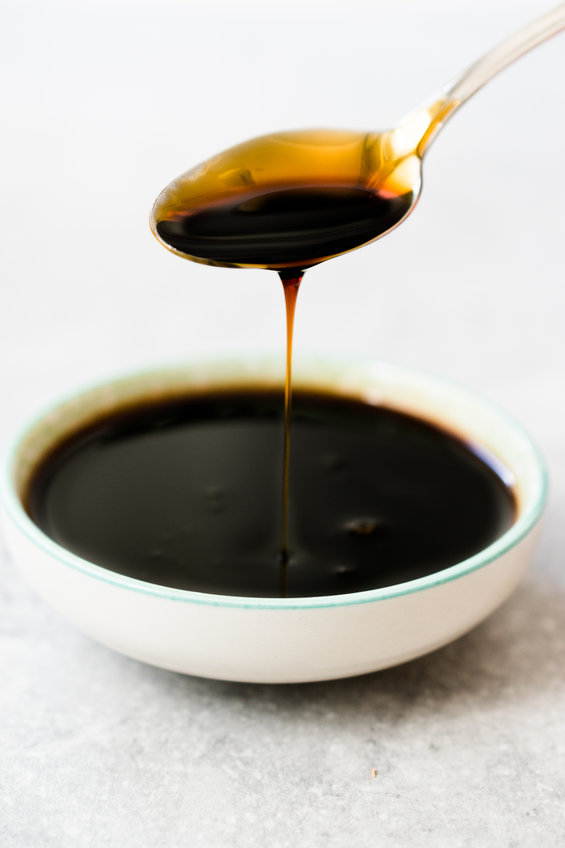 Molasses spray
Molasses spray Useful for aphids, thrips and mites (anybody willing to give it a go with the dreaded chilli thrip?) Use very fine kaolin clay (which we have @ GLSC - pictured right ), mix with water and spray on critters. The spray will suffocate them, and glue up their mouth parts.
Useful for aphids, thrips and mites (anybody willing to give it a go with the dreaded chilli thrip?) Use very fine kaolin clay (which we have @ GLSC - pictured right ), mix with water and spray on critters. The spray will suffocate them, and glue up their mouth parts. 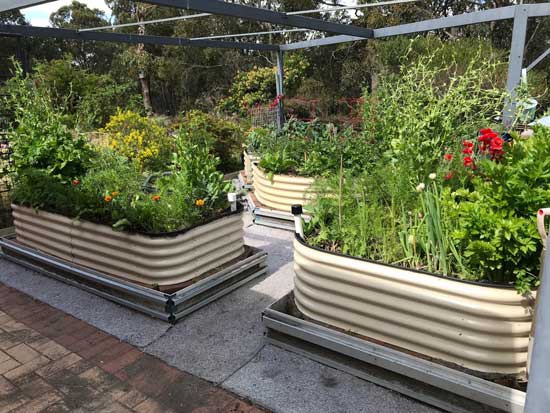
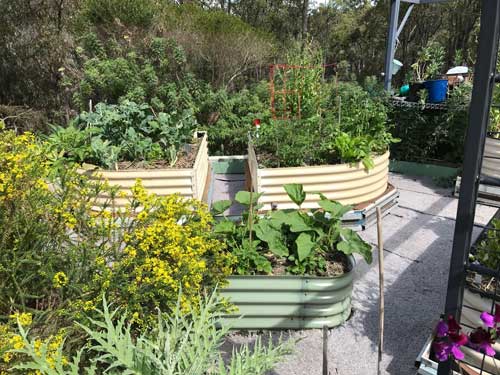 Congrats to Murray and Diana Peters, who sent in these great shots of their garden they've converted to wicking beds. As we talked about in the article above, wicking beds are a fabulous way to save water and keep your plants thriving over the summer months.
Congrats to Murray and Diana Peters, who sent in these great shots of their garden they've converted to wicking beds. As we talked about in the article above, wicking beds are a fabulous way to save water and keep your plants thriving over the summer months.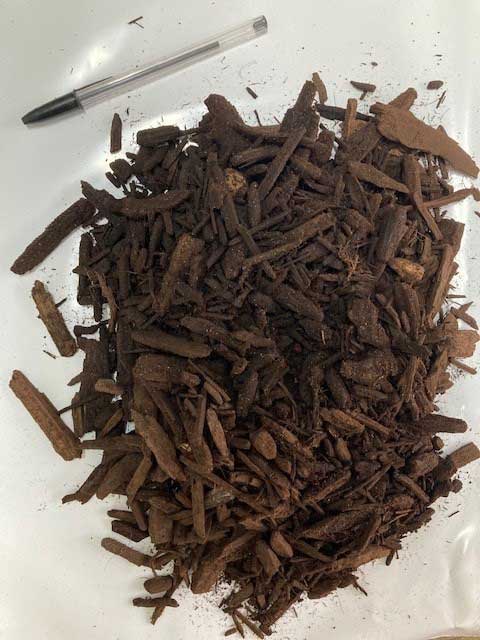 We've been working to increase the number of storage bays we have @ GLSC - so we can bring in new product lines. We've JUST ordered a BRAND NEW mulch product; "Forest Mulch" - it's made from composted tree waste, but is chunkier and heavier than the Economulch we carry. (If you know our two mulches; it would sit well between the Economulch and the Recycled Tree Prunings - it's coarse like the RTP but dark in colour (composted) like the Economulch.)
We've been working to increase the number of storage bays we have @ GLSC - so we can bring in new product lines. We've JUST ordered a BRAND NEW mulch product; "Forest Mulch" - it's made from composted tree waste, but is chunkier and heavier than the Economulch we carry. (If you know our two mulches; it would sit well between the Economulch and the Recycled Tree Prunings - it's coarse like the RTP but dark in colour (composted) like the Economulch.) Beaufort Garden World - Inglewood 9271 0585
Beaufort Garden World - Inglewood 9271 0585






